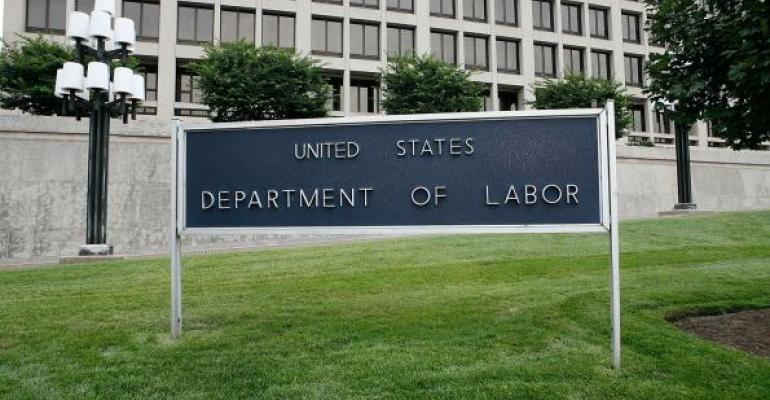The latest delay of the Department of Labor’s retirement-savings rule has officially been approved by the Office of Management and Budget, and the process to alter it is under way.
The OMB’s Office of Information and Regulatory Affairs (OIRA) concluded a review of the rule and took the action “consistent with change,” effectively approving the delay and beginning the closed-door deliberation of it between the office and the DOL.
It was a marked point in the life of the so-called fiduciary rule, which has an opaque future. In February, President Donald Trump issued an executive order requesting the DOL review the rule only months before it was to begin taking effect June 9. Shortly after, Labor Secretary Alexander Acosta announced in a Wall Street Journal op-ed that the rule would not be delayed but that the department’s review was ongoing.
Since then, Securities and Exchange Commission Chairman Jay Clayton has expressed interest in the rule, state legislatures have considered their own fiduciary rules, and the DOL filed for the additional 18-month delay, which OIRA approved Monday.
The action “consistent with change” means OIRA has suggested changes of some kind to the DOL’s rule, according to Sean Moulton, the open-government program manager for The Project on Government Oversight, a nonpartisan, independent watchdog of government reform.
The nature of the suggested changes has not been made public, and they could remain undisclosed until after the DOL and OIRA can agree on them, Moulton said. The deliberation has no time constraint, perhaps other than the expiration of the delay, and there is nothing that would prevent an additional delay in the future or from the rule being scrapped entirely.
While the changes could be significant, they are not likely drastic; otherwise, OIRA would have “returned” the rule to the DOL, Moulton said.
One of the possible changes under debate could be a clause related to class-action lawsuits.
In a lawsuit against the DOL filed by an insurance company, a recent letter from the department to the presiding judge suggested a clause in the rule banning firms from using a class-action waiver requirement will eventually be scratched before it takes effect in the summer of 2019. The fate of the remaining components of the rule remains to be determined.
Christine Lazaro, an associate professor at St. John's University School of Law, is a proponent of the fiduciary rule and was disappointed the delay was approved.
“Investors will continue to be harmed by conflicted advice, especially if there is no meaningful way to enforce the impartial-conduct standards,” Lazaro said. “The DOL has already demonstrated that the costs of compliance are outweighed by the costs associated with delay.”

